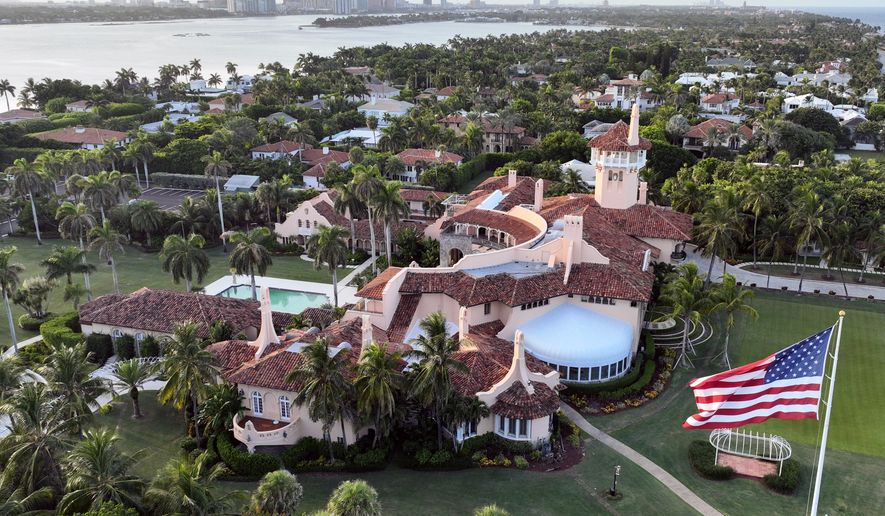The Justice Department agreed Monday to former President Donald Trump’s choice for a special master to adjudge the dispute over papers seized by the FBI in the raid on his Mar-a-Lago home.
According to court papers filed Monday, the department agreed to Judge Raymond J. Dearie for the post.
Judge Dearie is a former chief federal judge in New York who now enjoys senior status in Brooklyn federal court, which means he can take on a lighter case load. He was appointed to the bench by former President Reagan.
The 78-year-old judge also served as a U.S. attorney and as a judge on the Foreign Intelligence Surveillance Court, which reviews sensitive intelligence cases.
Prosecutors asked U.S. District Court Judge Aileen M. Cannon to appoint Mr. Dearie along with its two proposed picks; retired Judge Barbara S. Jones, who acted as a special master in an investigation of former Trump attorney Rudolph W. Giuliani, and Thomas B. Griffith, a retired appeals judge for the District of Columbia Circuit.
“Each have substantial judicial experience, during which they have presided over federal criminal and civil cases, including federal cases involving national security and privilege concerns,” prosecutors wrote.
Mr. Trump’s legal team had also nominated Paul Huck Jr., who previously served as the deputy attorney general in Florida and as a general counsel to former Florida Gov. Charlie Crist, who at the time was a Republican. The Justice Department said in its filing that it opposes Mr. Huck’s nomination because he doesn’t have the experience with national security and privilege cases.
In a separate filing, Mr. Trump’s attorneys said the Justice Department’s proposed special master candidates are “not suitable” for the job, but they didn’t explain why.
“Plaintiff objects to the proposed nominees of the Department of Justice. Plaintiff believes there are specific reasons why those nominees are not preferred for service as special master in this case,” the Trump attorneys wrote.
The lawyers said Judge Cannon did not ask for detailed reasoning about their objections, but they said they would provide it if she requested
Judge Cannon still must approve who or how many candidates will serve as special master, but it is rare for a judge to reject a mutually-agreed-on adjudicator. It is unclear when she would issue a ruling.
In a Labor Day ruling, Judge Cannon granted Mr. Trump’s request to appoint a special master to review documents seized at Mar-a-Lago during the Aug. 8 FBI raid.
She dismissed objections by the Justice Department, who raised concerns that the appointment of a special master would slow down its criminal investigation into Mr. Trump’s potential mishandling of classified government documents.
Earlier on Monday, Mr. Trump’s team filed court papers calling for speedy implementation of Judge Cannon’s order that a special master should review the seized documents to see whether any should be kept from federal prosecutors because they are shielded by attorney-client or presidential privileges.
• Jeff Mordock can be reached at jmordock@washingtontimes.com.
• Victor Morton can be reached at vmorton@washingtontimes.com.




Please read our comment policy before commenting.